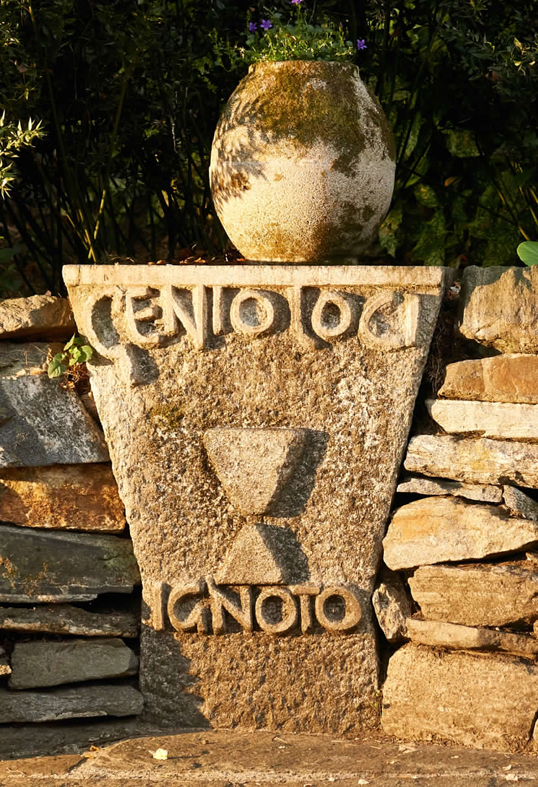
ITA ENG


Dike, Polemos. On the Meaning of War
EJL2024-05

Lecture: Dike, Polemos. On the Meaning of War
Lecturer: Massimo Donà (Università Vita-Salute San Raffaele, Milano)
Date: Froday, October 4, 2024, 6:30 p.m.
Place: Monte Verità (Ascona), Auditorium
Cycle: Eranos-Jung Lectures 2024 - The Great Worksites of Contemporaneity. Looks at the Knots of the Present
Language: Italian
Moderator: Fabio Merlini (Eranos Foundation, Ascona / SUFFP, Lugano)
Followed by discussion with the audience and aperitif
The video recording of the conference is viewable on the official YouTube channel of the Eranos Foundation.
Lecture Presentation
It is difficult in human experience to find things or people that are only beautiful or only ugly, only good or only bad, only lovable or only hated... Catullus already knew this well, and it is no coincidence that he could write, “I hate and I love. Perhaps you will ask how this is possible; I do not know, but it is just so and I torment myself“ (”Odi et amo. Quare id faciam, fortasse requiris; nescio, sed fieri sentio et excrucior” - Carme 85). We torment ourselves because we wish we could be either on one side or the other. Because we wish we could feel pure, uncontaminated feelings of one kind or another that are radically and absolutely opposite. Yet, there is nothing to be done: it seems that in life we cannot help but have to deal with an indistricable confusion of opposites. But, how to accord this fact with the Heraclitean conviction that on the one hand “polemos (opposition, separation) is the father of all things,” but on the other hand one should also recognize that “everything is one” (that everything is united and recalls each other)? How much more urgent, in times like ours, is a reflection on the meaning of war - an expression that refers back to the Greek word "polemos" -, trying to find its aporias in the original evidence of Greek thought. And, more deeply, then, on the meaning of the relationship between identity and difference.
Lecturer' Bio-bibliography
Massimo Donà (Venice, 1957), a philosopher and jazz musician, is full professor of Theoretical Philosophy at the Faculty of Philosophy of the Vita-Salute San Raffaele University of Milan, where he teaches Metaphysics and Ontology of Contemporary Arts. He directs the series “Libri da ascoltare” and “Anime in dettaglio” for the publishing house AlboVersorio and is a member of the scientific committee of the festival La Festa della Filosofia. His latest publications include Teomorfica. Sistema di estetica (Bompiani, 2015), Senso e origine della domanda filosofica (2015), Tutto per nulla. La filosofia di William Shakespeare (2016), Di un’ingannevole bellezza. Le “cose” dell’arte (2018), Di qua, di là. Ariosto e la filosofia dell’Orlando furioso (2020), Una sola visione. La filosofia di J.W. Goethe (2022), Filosofia della carta. Natura, metamorfosi e ibridazioni (2022), Di fantasmi, incantesimi e destino. Emanuele Severino, ultimo calligrafo della verità (2023), and the most recent La filosofia dei Rolling Stones (2023).
--
The Foundation wanted to question some leading figures in today's cultural world, asking them to present the projects and issues on which they are working. The idea is to bring into dialogue at a distance qualified gazes on the nodes of our present, to highlight their risks, opportunities, and prospects. Not, of course, to listen to the last word on what is happening today, but rather to enter their laboratories of thought and try to focus on a kind of ongoing geography of the present time: to orient ourselves, to find ourselves, to map out possible virtuous paths-despite the disorientation and uncertainty that characterizes us, in an age that is very rich in technological resources, but very poor in future perspectives. Rather than inviting them to reflect on a guiding theme, as is the Eranos-Jung Lectures usual practice, we wanted to offer the lecturers the chance to present to the audience the issues they are working on, to see how the gaze on an object is constructed, through what sensibility, what concerns, what desire for understanding, and what method. And, of course, what passion. It will be a journey that will allow us to visit some “great worksites of contemporaneity” dedicated to different thematic areas: i.e., the state of health of our democracies; the fate of the “book” object and interiority in the time of endless distraction and social media; the reality of the metaverse, the overcoming of the human, and the resources of mysticism; the sonic perceptive in a society that continually solicits the sense of hearing; the solitude of the artist in the glittering world of the commodification of creativity; the drifts of the divine; and the meaning of making culture. In essence: a journey outside and inside ourselves.